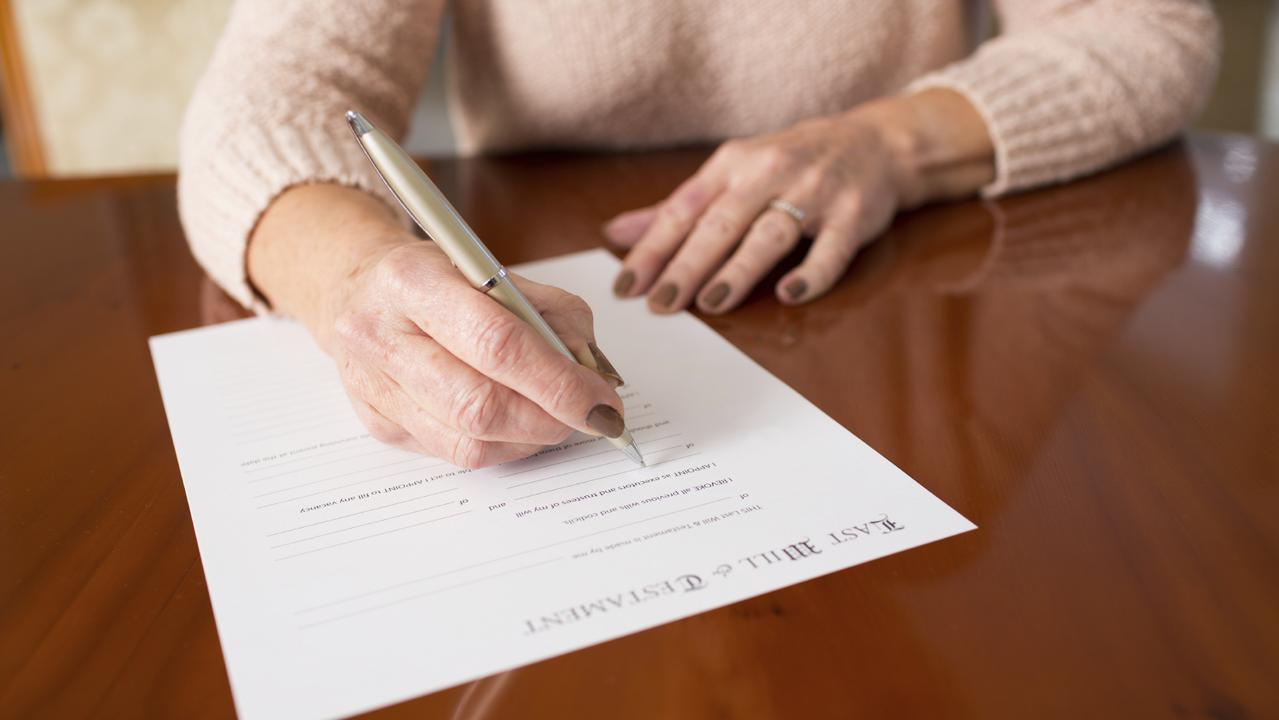How writing a will can save you money, as many Australians do not have one before death
Taxes and inheritance issues are some of the nasties that can make the death of a loved one even worse. There are ways to avoid it.
It’s one of life’s two certainties but nobody wants to talk about it.
While we’ll complain loudly about paying taxes, that other certainty – death – is given the silent treatment by many because it’s too uncomfortable to consider.
But giving death the cold shoulder risks creating permanent financial and emotional damage for the people closest to you.
Nobody wants their legacy to be blackened by family fights or confusion about their final wishes, so here are some ways to prevent pain.
WHERE THERE’S A WILL …
Just having a will is a stumbling block for many people, and it’s estimated that half of Australians die without one.
Writing a few thoughts down on paper won’t cut it when the legal processes start, and beware of cheap will kits that may lead to large legal holes.
Michael Spiegel from State Trustees says people drafting a will make common mistakes including:
• Forgetting to sign and date it.
• Incorrect personal details, including the wrong full legal names of beneficiaries.
• Appointing an executor who doesn’t want to do the job.
• Not clarifying whether they own assets independently or with someone else.
• Not storing it in a safe place or forgetting where they left it.

TAKE IT A STEP FURTHER
While wills deal with all the legal stuff, it’s important to have a separate file that outlines all your bank accounts, investments, debts, insurance, funeral plans and other important numbers and wishes.
Often called an executor dossier, they typically contain more information than your will does, and there’s plenty of examples of them online to serve as your guide.
Also appoint powers of attorney who will handle decisions if you’re physically or mentally unable to. Don’t just assume your partner will manage this, because in some cases it may revert to a government agency.
DON’T PAY DEATH TAXES
Australia does not have a specific death tax slapped on people’s estates, but the fact that superannuation is becoming a huge part of many people’s wealth means there is a pseudo death tax for those who don’t know how to avoid it.
When we die, money held in super is only tax-free when left to a dependent beneficiary such as a spouse. But adult children are generally not dependent beneficiaries so a nest egg might get 17 per cent in tax sliced off it before it reaches the kids.
Financial planners often recommend running a re-contribution strategy, where super is withdrawn tax-free after age 60 and then pumped back in as a non-concessional contribution that makes it tax-free when later released after the member has died.
SUPER CONFUSING FOR SOME
Superannuation is treated differently than other assets when we die because it is not legally part of a will.
Unless you make a binding death benefit nomination to your fund about who you want your superannuation to go to, the super fund trustee gets to decide and it may not be in line with your wishes.
There’s also a pile of rules and strategies around tax and income streams, so those with significant super assets in their golden years would be wise to seek some professional advice.





